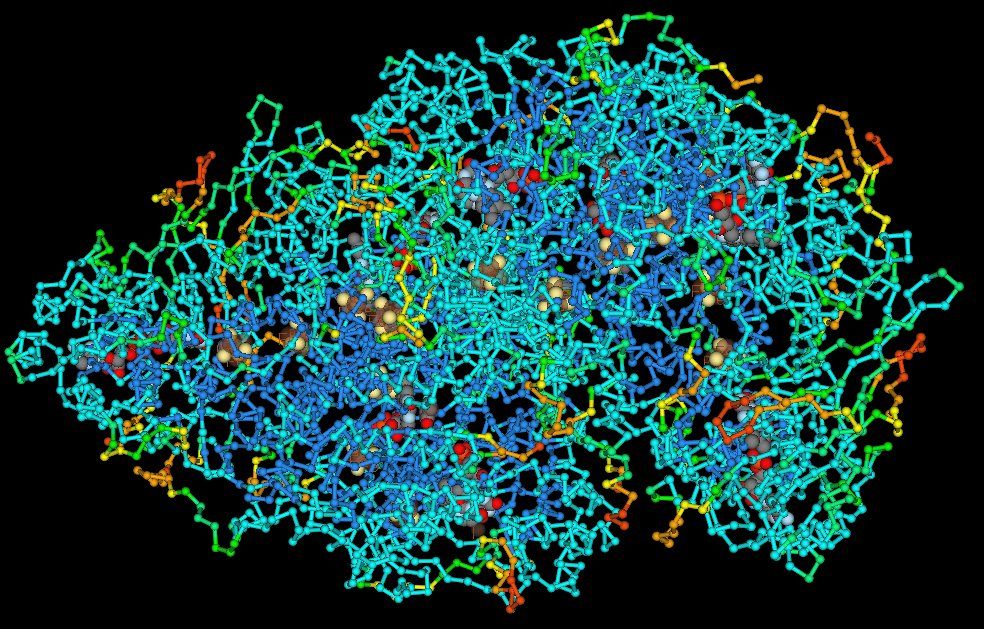Comprehending Polymers: The Science Behind Versatile Products
Comprehending Polymers: The Science Behind Versatile Products
Blog Article
Making Best Use Of the Prospective of Polymers: Discover the Diverse Advantages and Practical Uses
In the vast landscape of material scientific research, polymers stick out as versatile compounds that have penetrated nearly every aspect of modern life. Their application extends numerous sectors, from production and building and construction to health care and innovation. The complex advantages and practical uses polymers proceed to develop, providing ingenious services to complicated difficulties. By discovering how polymers can improve item longevity, drive sustainability campaigns, revolutionize medical care options, and lead the means for future technological innovations, we can discover a globe of possibilities waiting to be used.
Importance of Polymers in Modern Industries
Polymers play a pivotal duty in modern-day sectors, functioning as flexible products that drive technology and effectiveness across a large range of sectors. These intricate molecules, composed of repeated subunits, have actually changed sectors such as automobile, aerospace, electronic devices, healthcare, and more. In the automobile sector, polymers have actually made it possible for the development of lightweight yet resilient parts, improving fuel effectiveness and overall efficiency. Aerospace industries rely upon polymers for their high strength-to-weight proportion, essential for airplane and spacecraft building and construction. The electronics market gain from the protecting homes of polymers, vital for producing circuit boards and digital tools (Polymers). Furthermore, polymers are thoroughly utilized in the medical care industry for medication distribution systems, medical gadgets, and biocompatible products. Their flexibility, sturdiness, and cost-effectiveness make polymers essential in modern-day manufacturing procedures, promoting advancements and driving progress in numerous markets worldwide. Welcoming the possibility of polymers is key to opening further developments and attending to the advancing demands of today's commercial landscape.
Enhancing Product Longevity With Polymers
With a concentrate on durability and durability, integrating sophisticated polymer modern technologies into product style has become a keystone of improving toughness in modern manufacturing processes. Polymers supply a large variety of residential properties that contribute to the total durability of items. One vital advantage is their resistance to rust, chemicals, and weathering, making them ideal for usage in numerous industries where direct exposure to rough conditions prevails.
Furthermore, polymers can be tailored to fulfill certain sturdiness demands, enabling manufacturers to customize products according to their intended usage and anticipated lifespan. By incorporating polymers right into item elements, suppliers can improve toughness and effect resistance, lowering the chance of breakage or use with time.
In addition, polymers are lightweight yet strong, supplying sturdiness without adding unnecessary weight to products. This particular is particularly advantageous in markets such as aerospace and automotive, where lightweight materials are necessary for enhancing fuel efficiency and general efficiency.
Sustainability Improvements Through Polymer Innovation
In the realm of modern-day manufacturing and item style, the cutting-edge application of polymers is driving significant advancements in sustainability practices. Polymer development plays a vital function in enhancing sustainability by providing remedies that decrease environmental influence across numerous industries.
Additionally, improvements in polymer modern technology have led to the creation of bio-based and renewable polymers, stemmed from natural sources such as navigate to these guys plants, that provide a more sustainable alternative to conventional petroleum-based plastics. These eco-friendly polymers not just assist lower dependence on nonrenewable fuel sources but also reduce greenhouse gas discharges during production. By integrating these cutting-edge polymers right into producing procedures, companies can decrease their environmental footprint and move in the direction of more sustainable practices, straightening with international efforts to battle climate adjustment and promote a round economic situation.
Polymers in Medical Care: Revolutionizing Medical Solutions

Among the essential areas where polymers are making substantial strides is in the advancement of targeted medication distribution systems. By enveloping medicines within polymeric nanoparticles or micelles, scientists can improve medication stability, improve bioavailability, and enable controlled launch, resulting in extra efficient therapy programs with lowered adverse effects.
Additionally, polymers contribute in the field of regenerative medicine, where they are used to create scaffolds that imitate the extracellular matrix, supplying support for cell development and tissue regrowth. This innovation holds immense pledge for fixing harmed body organs, advertising their explanation wound recovery, and progressing individualized medication methods.
Essentially, the combination of polymers in medical care is driving advancement, improving treatment efficacy, and eventually enhancing patient results in ways formerly thought unattainable.
Future Applications and Developments in Polymer Modern Technology
Progressing at the leading edge of scientific discovery, polymer innovation continues to lead the way for groundbreaking applications and developments shaping diverse markets. In the realm of sustainable product packaging, biodegradable polymers are acquiring grip as eco-friendly options to standard plastics. These polymers break down normally, minimizing the ecological impact of single-use things. In the area of electronic devices, conductive polymers are revolutionizing wearable modern technology and versatile electronics. Their special residential or commercial properties permit the development of elastic circuits and sensing units, making it possible for new opportunities in healthcare tracking and smart clothing. In addition, polymer nanocomposites are boosting the mechanical and thermal residential properties of products, causing more powerful and lighter components in Visit This Link aerospace and auto industries. Looking ahead, researchers are checking out the capacity of shape-memory polymers for applications in robotics and biomedical devices, where materials that can "keep in mind" and change to their original forms use interesting opportunities for innovation. As polymer technology continues to develop, the future holds endless possibilities for groundbreaking improvements across different markets.
Verdict

Report this page